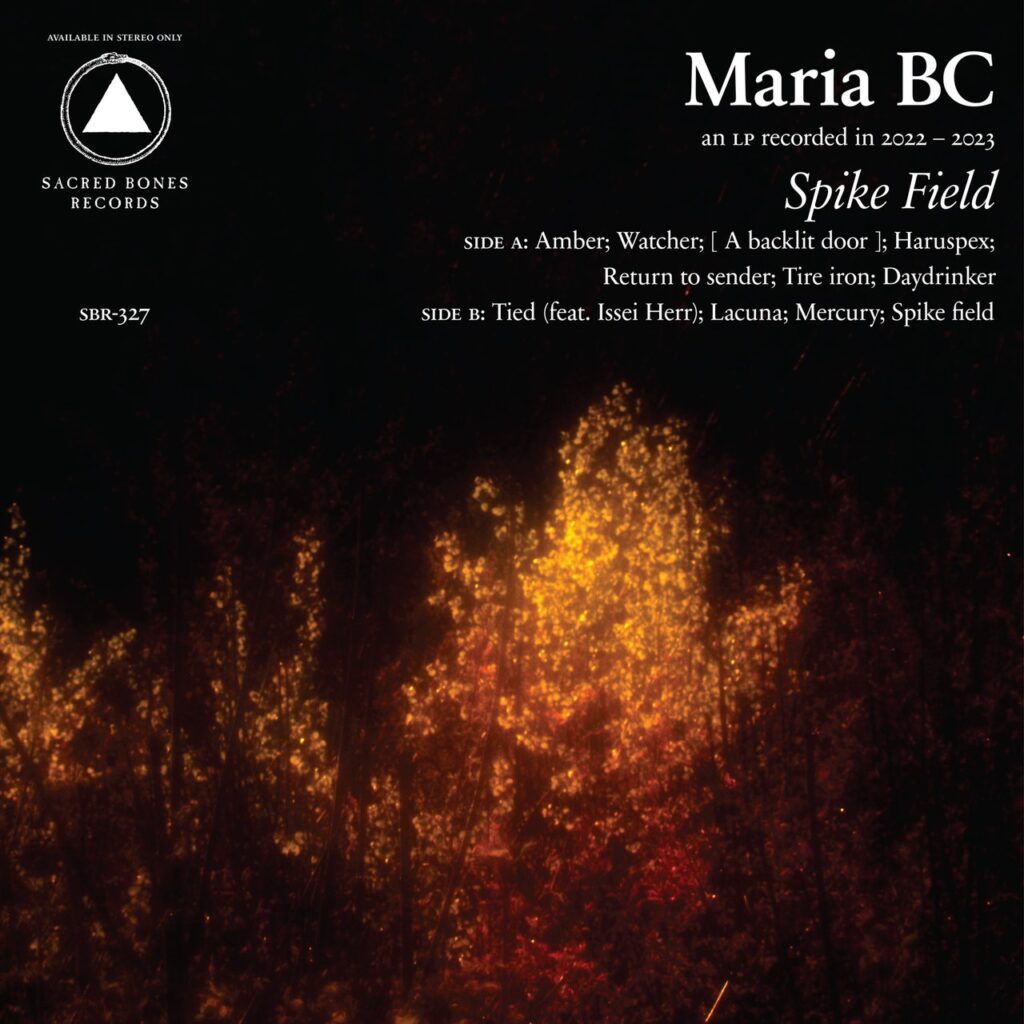Since the 1980s, teams of engineers, anthropologists, and other specialists assembled by the U.S. Government have attempted to warn us about nuclear waste repositories. A field known as nuclear semiotics was developed around the challenge of relaying danger in the distant future when our existing modes of language might become obsolete. One proposed method was creating a “spike field,” or demarcating a hazard zone with giant, ominous granite prongs jutting from the ground at odd angles. This unshakeable image struck Maria BC, whose overcast music explores the complexities of human communication, the promise of connection and the terror of the past intruding.
On their second album, Spike Field, they balance raw beauty and digital destruction. They recorded it at a family friend’s home in San Francisco instead of their cramped Brooklyn apartment, and the album’s languid, widescreen sound reflects a newfound sense of space. Listening to Spike Field is a paranoia-inducing experience: all eerie ambience, punctuated with unexpected moments that are small but explosive. A melodic guitar line will reverse without warning, an acoustic squeak will jump from the mix, and an out-of-tune Steinway will dissolve into oblivion. Those glitches play like brain zaps, momentary electrical pulses that alert the senses even at the record’s most serene. There are moments of reprieve, like the fog lifting on the soaring chorus of “Mercury,” but it takes wading through the murk to get there.
What ties everything together is Maria BC’s mezzo-soprano, a lilting, trembling guide through the wreckage. After adopting a hushed tone in their early music to avoid disturbing their roommates, the classically trained singer gets to display their full range as they sort through old, unresolved memories. “Return to Sender” dwells on a lost connection with a friend who went through a psychotic episode; “Still” expresses an ambivalent relationship to a younger self. “You’re looking good now, double crossing every line still/In the blue light of my mind,” they sing. These are blurry snapshots that Maria BC explores by stretching out every detail to the edge of comprehension. On “Watcher,” they regret being a bystander to someone’s pain, chanting the words “I saw” as harmonies from Dear Laika and G. Brenner accentuate the angst.
In these songs, we hardly know the specifics; disembodied thoughts are charged with emotion but devoid of context. On “Haruspex,” Maria BC invokes an ancient Roman practice that involves inspecting the insides of sacrificial animals. “Is my body right?/A pound of flesh/A dime for the haruspex,” they sing. The impressionism of the lyrics precludes easy understanding, but the unsteady terrain is what makes Spike Field intoxicating. The tension between abstraction and emotional intensity comes to a head on “Tied,” a song that shifts from dissonant guitars to hopeful, major-key melodies with cello accompaniment from MIZU. Spike Field is a lonely record, but it demands close listening for the moments when the light breaks through.
All products featured on Pitchfork are independently selected by our editors. However, when you buy something through our retail links, we may earn an affiliate commission.

